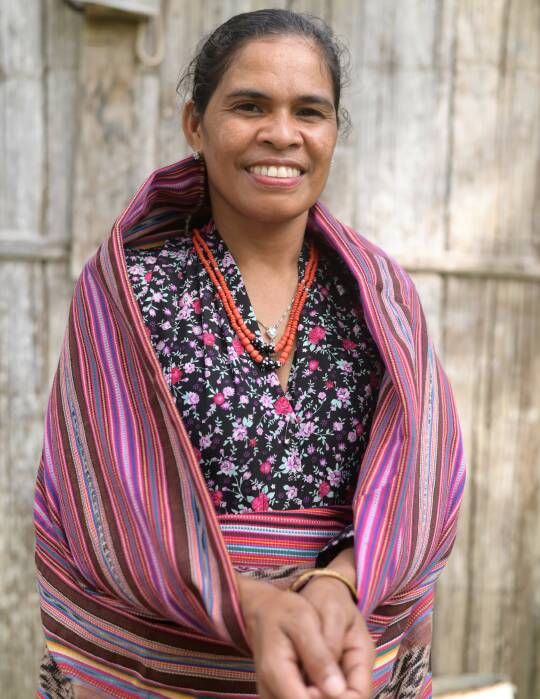A women's weaving cooperative in Timor-Leste (formerly known as East Timor) has presented a series of ceremonial cloths to Australia to mark the peace-keeping effort there in 1999 and 2000.
The textiles were commissioned from the cooperative by the Australian War Memorial, and were presented to the Australian embassy in the Timor-Leste capital Dilli. They have now arrived in Canberra where they will go on display at the War Memorial.
The four traditional woven cloths known as Tais are said to represent the East Timorese people's path to independence and the newly-independent country's shared history with Australia.
The Australian Defence Force led a peace-keeping effort there as the country fought for, and finally won, independence from Indonesia.
"On behalf of our nation of Timor-Leste, we thank the Australian Defence Force for helping us gain independence," Ilda da Cruz, the coordinator of the weaving cooperative, said.
"We also thank the Australian government for supporting projects that help rural communities across Timor-Leste," she said.

From the Australian side, the War Memorial director, Matt Anderson, said: "The acquisition of these beautiful Tais allows the Australian War Memorial to tell the story of the Australian-led deployment to Timor Leste."
"But most importantly, it also allows us to consider the impact of the conflict on the East Timorese people and to see it through their eyes, and expressed in their culture.
"The four Tais were selected for their significant cultural values and ritual uses. They will help us to reflect on the resilience and strength of the East Timorese people."
The cloths were crafted by the LO'UD Cooperative, a small non-profit organisation run by rural women living in a remote area on the southern tip of the island.
Before independence in 2002, many East Timorese were killed, and as many as 500,000 were displaced from their homes. About half of these enforced migrants left the territory, in some cases under threat of violence.
East Timor was a Portuguese colony until 1975 when it became part of Indonesia.
Resistance then continued throughout Indonesian rule. In 1999, a UN-sponsored move led to Indonesia relinquishing control of the territory.
On May 20, 2002, Timor-Leste became the first new sovereign state of the 21st century. The cloths are a mark of gratitude.







